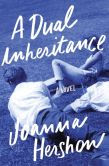 Have you ever read a book
waiting with bated breath for something to happen, and when something happens,
EVERYTHING happens? Such is the case with Gail Godwin’s Flora.
Have you ever read a book
waiting with bated breath for something to happen, and when something happens,
EVERYTHING happens? Such is the case with Gail Godwin’s Flora.
The title character is a
simple-hearted but overly emotional woman who is asked to stay with a young
girl, Helen, during the summer while Helen’s father goes off to do a job. All we know at the beginning is that this job
is somehow related to World War II, which is when this novel is set. Helen is not keen at all on this, having just
lost her beloved grandmother. To make
matters worse, her father forbids Flora from letting Helen see any friends or
go anywhere due to a polio outbreak.
Helen is prone to jealousy and normal “tween” feelings, especially when
the local grocery delivery man takes a liking to Flora.
There is no outlined plot
to Flora, so if you like your novels
with tons of action, this is not the book for you. In a nutshell, the reader is let into the
fishbowl of Helen and Flora’s summer, which is interspersed with colorful
characters and historically significant developments. However, the main relationship, between Helen
and Flora, isn’t fully fleshed out. By
the time something major happens (and believe me, you’re waiting a long time),
it seems like an afterthought by Godwin.
Perhaps she wanted to lull the reader into a state of contentment, but
for me, it just wasn’t enough substance.
MY RATING - 3







